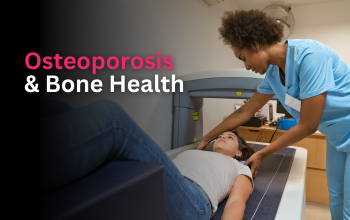The Arthritis Newsletter
Summer 2011Should I take Methotrexate?
Our readers have demonstrated an interest in learning about current research projects. Some may have considered volunteering for health research but would like to learn more. We asked Dr. Linda Li, a research scientist at the Arthritis Research Centre of Canada, about her research project, ANSWER, and how the general public can participate in arthritis research.
Here’s what we learned…
Why did you decide to develop the ANSWER program?
For people with RA, disease-modifying anti-rheumatic drugs (DMARDs) should be used within the first three months of symptoms in order to prevent permanent joint damage. However, a 2007 study by Dr. Diane Lacaille found a long delay in DMARD use in BC, Canada. Only 33% of the 1,822 people with RA surveyed had begun taking DMARDs. Reasons given for not using a DMARD included:
- Fear of the side effects – 26%
- A preference to avoid medications – 24%
- Not aware that DMARDs prevent joint pain – 19%
There has been little done to improve the delivery of trustworthy and user-friendly information for people to make informed decisions about their treatment. Keeping in mind that early treatment for people with RA leads to better health outcomes, it was important to design a user-friendly program to help people make educated decisions early on about their treatment.
My doctor has recommended that I take Methotrexate, but I’m unsure. How can the ANSWER program help me?
- Improve understanding of benefits and risks of different treatment options
- Provide user-friendly information based on best evidence of management options in early RA. This information is presented side by side with medication options that the individual may want to discuss with their doctor.
- Facilitate decision-making in the context of your everyday life. The ANSWER program assists individuals to assess and reflect upon the ways in which the information provided may be personally relevant, harmful or beneficial.
- ANSWER is designed to help people with early RA make informed, timely decisions about whether or not to use the DMARD, Methotrexate.
Can the ANSWER program help me if I’ve already begun taking methotrexate?
ANSWER is designed with people who have yet to begin taking methotrexate in mind. Once a person begins to take methotrexate, theoretically they have already made a decision. Having said this, the program may still provide information that others may find they want to communicate with their doctor.
Has the ANSWER program been designed to convince me to take methotrexate?
No. ANSWER aims to provide unbiased evidence-based facts that will enable people to better consider their range of options and reach a decision that makes sense for them.
Besides taking methotrexate, what other options might the ANSWER program suggest?
Once the program is complete, a one-page printout summary of your options and concerns will be available to facilitate discussion about RA medications with your doctor. (Traditionally, a ‘do nothing’ option would be included. However consumers who reviewed this matter felt that providing such an option would be unethical given the unacceptable health risks it poses). Consequently, the program instead will help individuals to choose between taking methotrexate and discussing alternative treatment options with their doctor.
Why do you think it’s important for people with early RA to have access to decision-aid tools like the ANSWER?
It’s all about empowering patients and improving health outcomes. By this I mean improving their knowledge about RA, and giving them best evidence findings so they can reach a well-informed decision – a decision they can live with.
What can I expect the ANSWER program to look like?
Answer is an interactive online tool that includes a series of videos with content that mirrors the real-life experiences of six people with arthritis as they consider the impact of treatment decisions on their daily lives. The videos address the following questions:
- What is Rheumatoid Arthritis?
- What is methotrexate?
- What are the benefits of taking methotrexate?
- What are the side effects?
- How does the use of methotrexate affect life (e.g. alcohol use, pregnancy, quality of life)?
The program also includes several online questionnaires.
Do I need to have strong computer skills to use the ANSWER program?
No, basic computer skills are sufficient. Fifteen participants were invited to take part in a usability test. Feedback on how the participants found the user interface, including the use of keyboard and mouse, was then used to improve ANSWER’s ease of use. Participants reported that they felt comfortable using the program with their existing computer skills.
Where can I find the ANSWER program?
Before the ANSWER program becomes available for public use, we are conducting a research study to test how well the program improves people’s knowledge about RA and helps them to reach effective treatment decisions. As part of the research study, we will be collecting data in British Columbia, Alberta and Ontario.
How can I get involved in the ANSWER research study?
We are now recruiting. If you have been diagnosed with RA and have been prescribed methotrexate, but have doubts about starting it, please contact Charlene Yousefi at:
- Email: cyousefi@arthritisresearch.ca (or) Phone: 1-877-871-4574
Each participant will receive a $25 gift certificate as a thank you for taking part in this study.
Are there any related studies?
For people with early RA, Dr. Anne Townsend’s study, Early Inflammatory Arthritis Help-Seeking Experience 2, may also be suitable. This interview-based study asks people with early RA to share stories of how they self-manage their symptoms, seek help and make decisions about their care. For more information, please contact Jenny Leese at:
- Email: jleese@arthritisresearch.ca (or) Phone: 604-871-4502
Current studies at the Arthritis Research Centre of Canada (ARC) are seeking to tackle a shortage of knowledge on how men manage early symptoms and illness, but researchers are having great difficulty in recruiting men to take part in research. As a result, researchers have greater access to evidence gathered from female volunteers and recommendations on arthritis care in Canada risk being geared towards the needs of women. Dr. Catherine Backman’s study, Fathers in Arthritis, appeals directly to men.
More information can be found at Fathers With Arthritis.
The research community at ARC is especially active. We list all current opportunities on our website.
On behalf of CAB members and our readers, thank you Dr. Li for your time and for giving us the opportunity to learn about this valuable decision aid.






















































